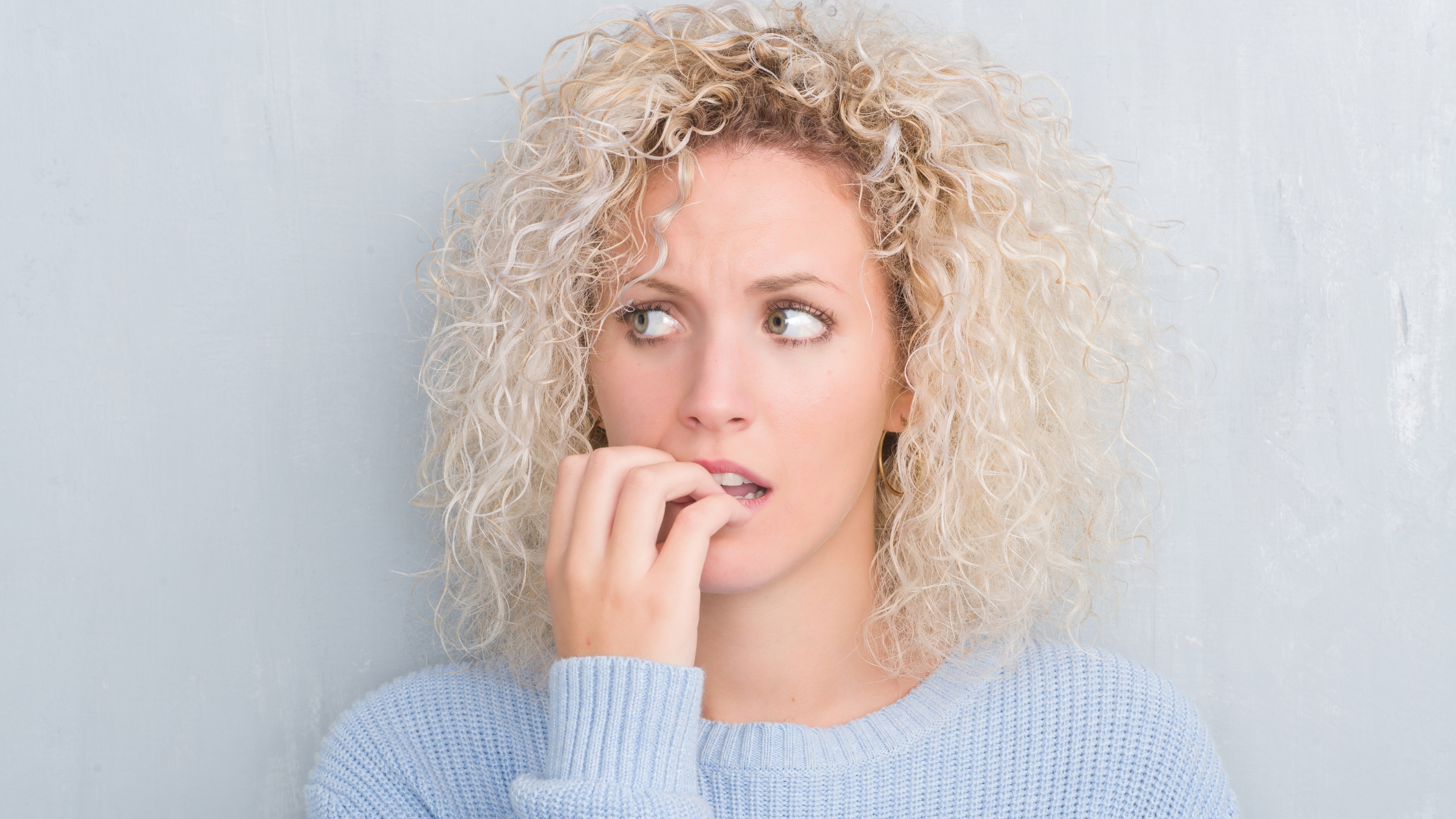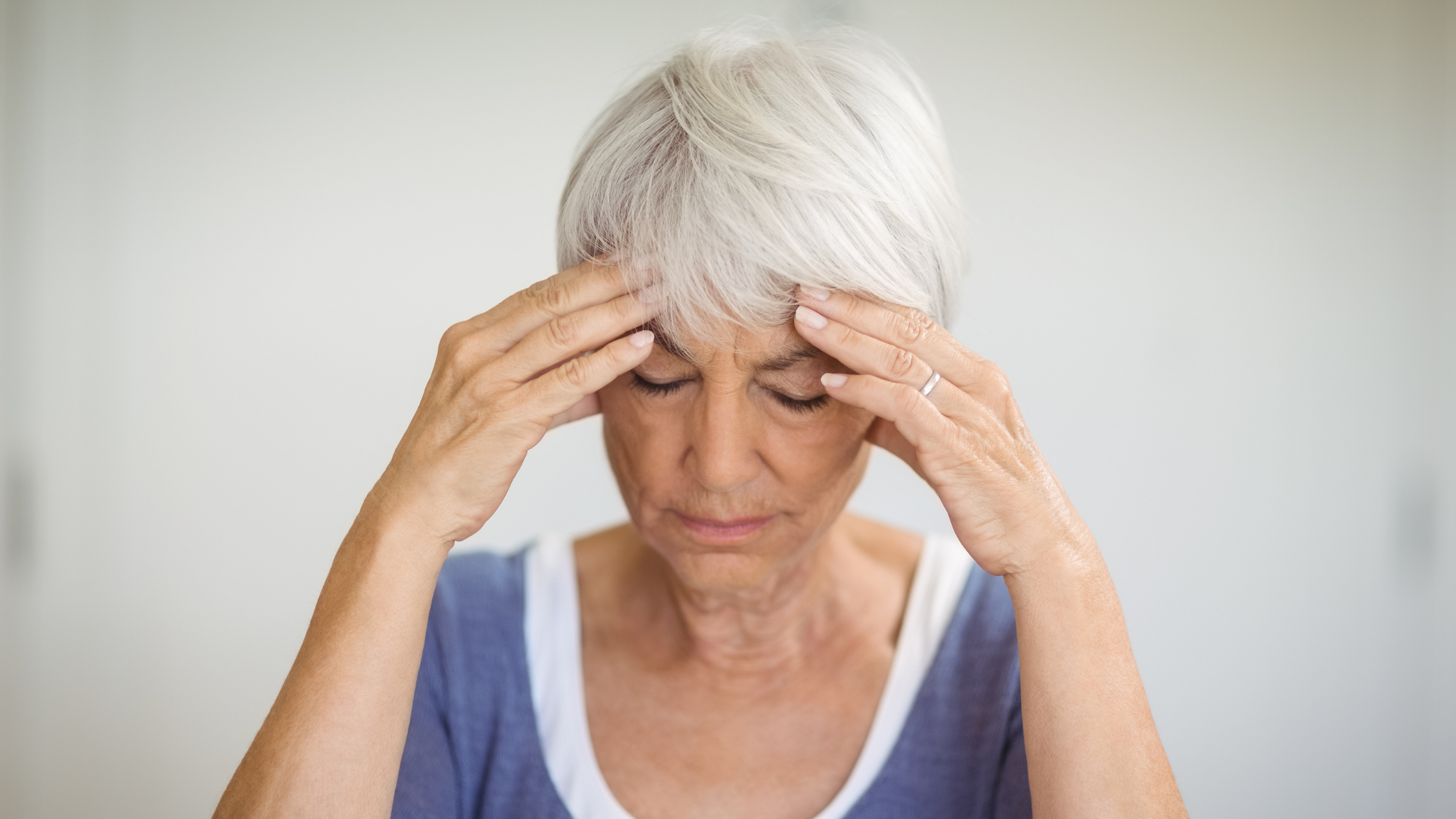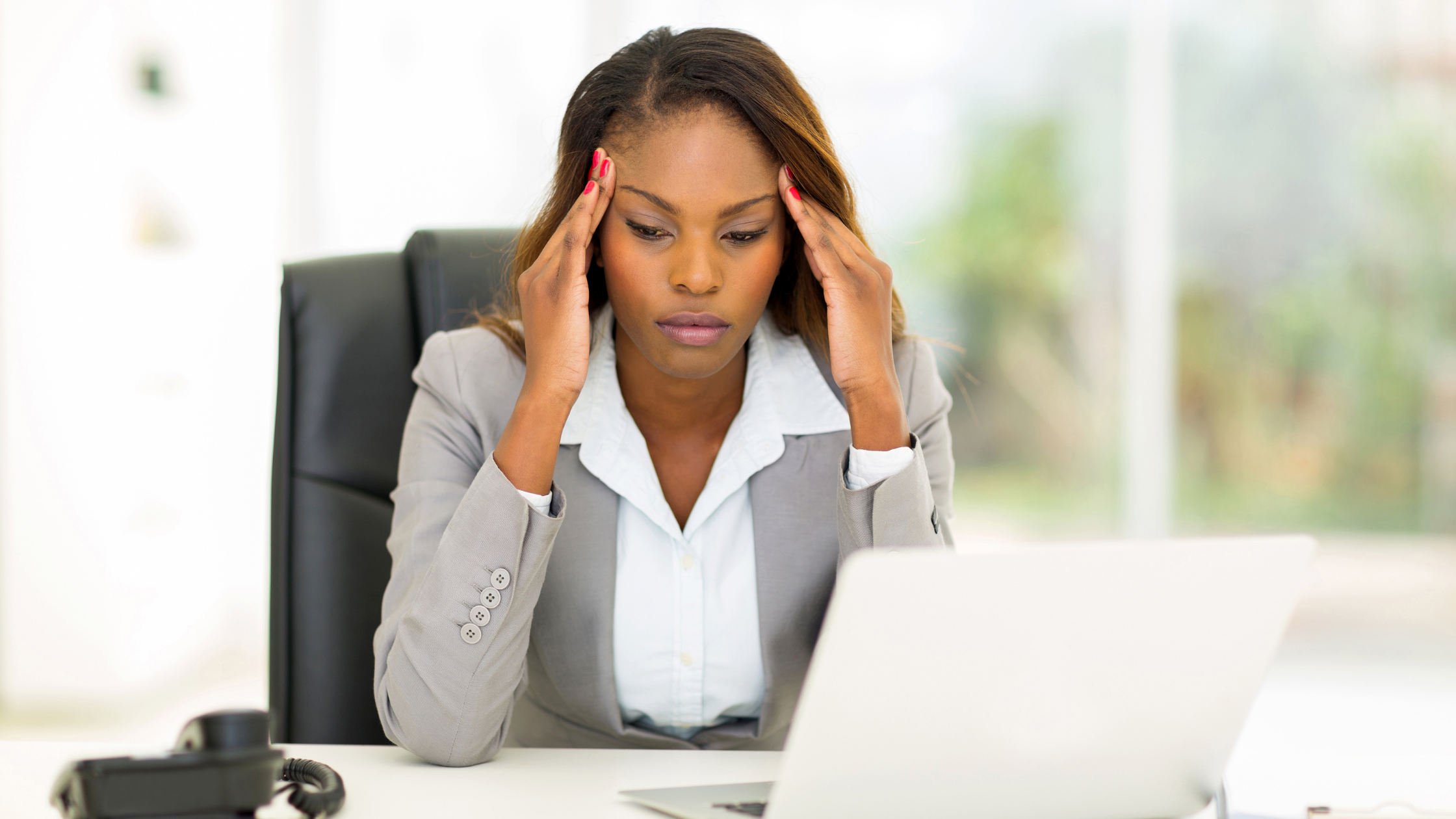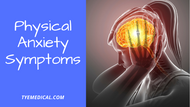Physical Anxiety Symptoms: What's Happening Inside Your Body?
Written by Tye Medical on Sep 7th 2021
It might seem that anxiety only affects your emotions, making it easy to dismiss the physical anxiety symptoms. But the mind-body connection is more powerful than researchers once thought and could be causing unexplained nausea, muscle aches, and even flu-like symptoms.
But what is going on inside your body, and how does it affect your health long-term? Chronic anxiety can lead to a variety of health conditions, from asthma to heart problems. It's not all in your head, which means you can experience symptoms throughout your body.
This article covers the emotional and physical symptoms and how to know if anxiety is the culprit (and what to do if it is).
Anxiety Overview
Anxiety is a stress response. Whether the stressor is an external circumstance or threat, or an internal thought like "what if…" or "I can't…" Both life and our thoughts trigger anxiety, and sometimes it's a necessary process. A little healthy fear can motivate us to meet a deadline or escape from danger, but this type of anxiety doesn't last. It comes and goes based on circumstances.
But sometimes anxiety begins to affect your daily life, and when that happens, it's considered a "disorder." Anxiety disorders affect about 40 million adults in the U. S. But not all types of anxiety look the same because they have different triggers and motivations. Some common forms include:
- Generalized anxiety disorder (GAD)
- Panic disorders
- Social anxiety
- Phobias
- Obsessive-compulsive disorder (OCD)
- Separation anxiety
If you have a disorder, you experience both the emotional and physical symptoms of anxiety. Sometimes this includes a general sense of fear that is nearly constant, intense, and sometimes debilitating. And yes, seniors experience anxiety too.
Regardless of the degree of anxiety you're experiencing, it's important to take symptoms seriously. You can take steps to alleviate your stress or seek additional help.
Cognitive and Emotional Symptoms of Anxiety

When you think of anxiety, you probably think of symptoms like worry and fear, the two hallmarks of an anxious state. But you might also experience several other symptoms that affect the way you think and feel, like:
- Nervousness
- Worry
- Panic (fear of impending doom)
- Dread
- Difficulty concentrating
- Racing thoughts
- Nightmares
- Irritability
- Obsessive thoughts
- Mind going blank
You might find that you're prone to the same several symptoms and don't regularly (or ever) experience some of the others. That's typical. It all depends on the degree of anxiety, the type, and you as an individual.
Physical Anxiety Symptoms

Physical anxiety symptoms are generally shared among the different disorders, but some manifest in more specific ways, like OCD or panic.
Here are some of the common physical symptoms to be aware of:
Digestive Problems, Stomach Pain, Nausea
Ever heard of the gut-brain axis? It's what makes your stomach upset when you're anxious. Your brain and gut communicate, so when something is troubling you emotionally or stirring up anxious feelings, your gut is bound to get the message.
Whether anxiety is a temporary or chronic response, you might experience nausea, indigestion, diarrhea, or constipation. Sometimes, you might even have bloating, abdominal pain, and excessive gas.
Headaches
You might notice an increase in the frequency or severity of tension headaches. Sometimes the pain is fleeting, or it can last for hours or days. Although tension headaches aren't usually as severe as migraine pain, they can trigger migraines.
Tension headaches symptoms include:
- Mild to moderate pain
- Band of pressure around your head
- Pressure behind your eyes
- Scalp tenderness
- Tightness in neck or shoulders
While stress and muscle tension can trigger headaches, so can changes in the brain chemical serotonin. Anxiety can cause these levels to rise and fall, prompting a headache.
Rapid heart rate or pounding heart
When anxiety kicks in and your brain perceives a threat (internal or external), it rings the alarm bells that signal an increase in the stress hormones cortisol and adrenaline. This prepares you to fight, flee, or freeze to fend off an attack.
These hormonal surges flow through your body, inciting many physical anxiety symptoms, including a rapid heart rate and increased blood pressure.
Insomnia or disturbed sleep

When you're anxious, the physical and emotional symptoms don't necessarily disappear when you sleep. Many anxiety sufferers have difficulty falling asleep, staying asleep, or both. And if you have chronic anxiety, this could drastically affect your life.
While over-the-counter sleep aids and supplements can help in the short term, it's important to deal with the underlying causes through stress reduction, therapy, and sometimes, medication.
Rapid breathing or shortness of breath
Your lungs and heart work together to maintain proper oxygen levels throughout your body. So, when stress hormones elevate your heart rate, your lungs pick up the pace and work harder to keep up. Sometimes, with acute anxiety or a panic attack, you have shortness of breath. It can feel like you lack oxygen or are suffocating.
When having a panic attack or shortness of breath, it's best to focus on deep breathing. This will both slow your heart rate and your lungs.
Weakness or fatigue
The same stress hormones that increase your heart rate, blood pressure, and breathing also affect many other body parts and systems. You experience a surge in energy as your system goes on alert. You're tense, "wired," and your bodily systems are in overdrive.
Once the adrenaline passes or decreases to a more manageable level, your body crashes. It expended huge energy stores and resources to accommodate the surging hormones. Depending on the intensity and duration, this can leave you feeling weak or exhausted until your body recovers.
Sweating, chills, or both
Ever hear someone say they sweat when they're nervous? Or that a fearful experience gave them the chills? The description is literal. Anxiety also affects the part of your brain that regulates body heat. When this happens, you might sweat profusely, have chills, or have both at the same time (cold sweats).
Muscle tension, pain, tingling, tremors
Your stress response activates your nervous system, which can then stimulate your muscles. You might feel tight muscles and pain in your neck, jaw, or low back where your nerves are in clusters. If you feel sharp muscle pain, it could be that your nerves contracted suddenly.
You might also have tingling fingers or toes, and the hairs on your neck might stand up. It's also not uncommon to experience tremors or twitching because your muscles tend to shake when they are primed to react due to the rise in stress hormones.
Is Anxiety Causing Your Symptoms?

Your emotional and physical anxiety symptoms can mimic other health conditions, so your doctor will want to rule out other causes like:
- Angina
- Heart attack
- Asthma
- Tachycardia
- Hyperthyroidism
- Mitral valve prolapse
- Menopause
- Adrenal gland tumors
- Medication side effects
- Substance abuse
If your doctor doesn't find a physical cause, you can complete a self-assessment questionnaire before having additional testing to help determine symptom triggers. If your anxiety response is situational, making life changes can sometimes bring relief.
Getting Help for Anxiety
If you're diagnosed with an anxiety disorder, you have several viable options for treatment. For many people, it isn't "cured" but managed. Managing emotional and physical anxiety symptoms will allow you to live a fuller and healthier life.
Often, you'll find that a combination of methods works best, like therapy and medication, or therapy and lifestyle changes.
Therapy
Anxiety typically has deep roots. While some are more prone to anxiousness than others due to genetics or personality, underlying painful experiences and emotions often feed it. It's human to want to brush it all off and leave it in the past, but our minds don't work that way.
Therapy can help you dig down to the roots and diffuse some thoughts that trigger negativity and anxiety. Find a reputable therapist, counselor, or spiritual advisor with whom you can talk openly about your symptoms, triggers, and past. Sometimes, just talking about it relieves pent-up anxiousness.
Lifestyle changes
Movement and activity can help relieve stress and focus your attention away from anxiety feelings or worrisome thoughts.
- Exercise regularly (try yoga!)
- Participate in fun activities
- Find time for hobbies
- Keep a journal
- Socialize
While you're increasing your leisure activity, try to avoid stimulants that can heighten anxiety, like nicotine, alcohol, or too much caffeine.
Some people also improve anxiety symptoms through meditation, prayer, and spiritual teachings.
Medication
You might be referred to a psychiatrist to determine the best medication and dosage to calm your anxiety. Just be sure you stick to your treatment plan and try including some lifestyle approaches and therapy. People tend to see more benefits when they combine treatments, and if therapy and life changes work well for you, medication might no longer be necessary.
Anxiety and Your Bladder
Physical anxiety symptoms can be disruptive, and a diagnosis might take some time. That's why it can be frustrating when you begin noticing overactive bladder (OAB) symptoms in addition to the other challenges you're facing.
Muscles in your bladder and pelvic floor can tighten when you're anxious, compressing your bladder. The additional pressure prompts the urge to urinate more frequently. With chronic anxiety, you might have long periods with OAB symptoms.
For more information about anxiety and OAB, read our article, Understanding the Link Between Anxiety and Overactive Bladder (OAB).
If you experience incontinence and OAB or have stress incontinence, you need reliable leak protection. TYE Medical provides Ultra-Thin Pads for light incontinence and Protective Underwear for heavier leaks.
Visit our online store for a full line of product options and discreet, free shipping.


